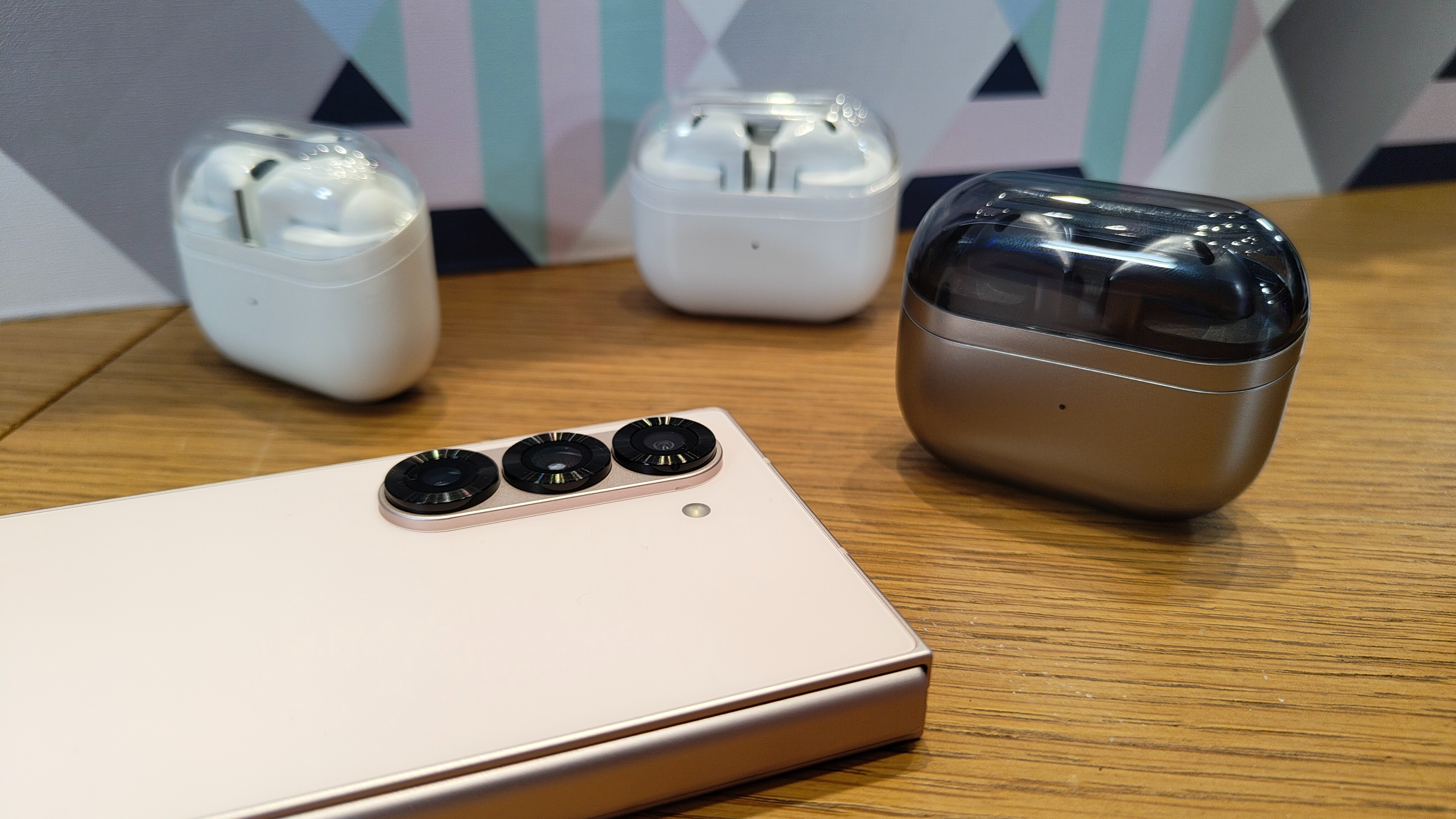
Samsung Electronics has filed a patent in the US suggesting that it plans to adopt Ultra-Wideband (UWB) technology for its future wireless headphones. For the past couple of years, UWB has been pitched as a potential way to deliver hi-res audio wirelessly to headphones – something Bluetooth cannot do – so if this filing (spotted by 91mobiles) is anything to go by, hi-res playback in headphones, currently unprecedented, may not be all that far away.
You see, due to the high (data) bit-rate of hi-res audio and the limited bandwidth capabilities of Bluetooth, ‘only’ 16-bit CD-quality is currently capable of being losslessly transmitted – and only in ideal transmitting environments between devices and headphones that both support Qualcomm’s aptX Lossless Bluetooth codec. Hi-res has therefore been off the menu for wireless headphones, but UWB could change that.
As its name suggests, Ultra-Wideband technology can achieve a higher bit-rate than Bluetooth, allowing it to pass through large amounts of data. It’s low-power, too, meaning it could be facilitated by wireless headphones’ relatively limited battery and processing capabilities.
Patent details: UWB in headphones… or earbuds?
The diagram within Samsung’s reported patent filing suggests that UWB would work alongside Bluetooth in this proposed Samsung headphone model, which actually uses more images of earbuds than traditional over-ear headphones.* Bluetooth would be first used to establish the primary connection between the source device (say, your phone) and one earbud/earcup, before a UWB connection is also established between them, and then a second is established between the two earpieces/earcups. The audio data (music) would then pass through these two UWB connections in that order, with Bluetooth then disconnecting. Both the source device and headphones would need to support UWB in this scenario. (Phones have actually supported the technology for years – the iPhone 11 and later models are compatible, as are various modern Samsung Galaxys and Google Pixels – but only for accurate location finding. Unlike Bluetooth, UWB can time how long signals take to get places, giving actual distances between devices.)
While UWB is beginning to be used in other audio applications – the Focal Diva Utopia speaker system uses it to pass hi-res audio between its two speakers, for example – this is one of very few hints we’ve had of UWB implementation in headphones. PSB announced a couple of years back that it was working on a hi-res pair, using UWB, but those are yet to transpire. Presumably UWB headphones are on the (hopefully near) horizon, not least as a new antenna has been developed to combat the technology’s body-blocking issues (body-blocking = interrupted signals and drop-outs). But for now, we wait.
*While the upcoming PSB headphones will likely be wireless over-ear headphones at the higher end of the market, the reported Samsung patent looks more focused on earbuds. If that turns out to be the case, will their hi-res audio transmission be such a boon? After all, the drivers within such wireless earbuds tend to only be capable of revealing so much musical information, so would the listener be able to hear all that extra musical detail (audio data) anyway? Perhaps, but to us it makes sense for hi-res capability in a pair of over-ears with more sophisticated (read: transparent) acoustics.
MORE:
Will UWB change the world of headphones? Because Bluetooth can't
Wi-fi for headphones is great news for sound quality, so is it the death knell for Bluetooth?
The best wireless headphones you can buy, as chosen by our experts







